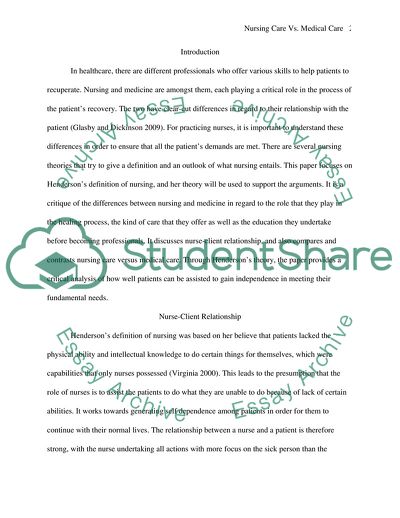Cite this document
(Nursing Care vs Medical Care: Using Henderson's Theory Essay, n.d.)
Nursing Care vs Medical Care: Using Henderson's Theory Essay. https://studentshare.org/nursing/1727245-nursing-care-vs-medical-care-using-hendersons-theory
Nursing Care vs Medical Care: Using Henderson's Theory Essay. https://studentshare.org/nursing/1727245-nursing-care-vs-medical-care-using-hendersons-theory
(Nursing Care Vs Medical Care: Using Henderson'S Theory Essay)
Nursing Care Vs Medical Care: Using Henderson'S Theory Essay. https://studentshare.org/nursing/1727245-nursing-care-vs-medical-care-using-hendersons-theory.
Nursing Care Vs Medical Care: Using Henderson'S Theory Essay. https://studentshare.org/nursing/1727245-nursing-care-vs-medical-care-using-hendersons-theory.
“Nursing Care Vs Medical Care: Using Henderson'S Theory Essay”. https://studentshare.org/nursing/1727245-nursing-care-vs-medical-care-using-hendersons-theory.


